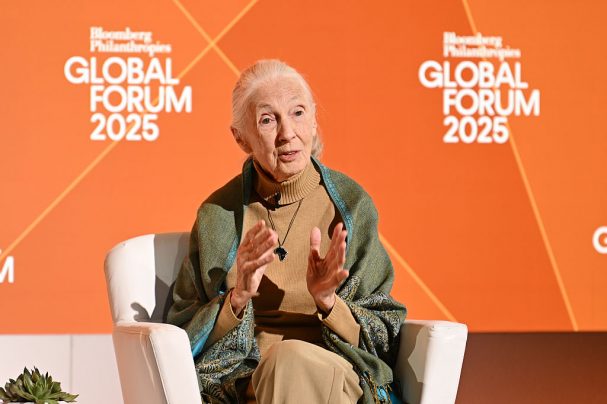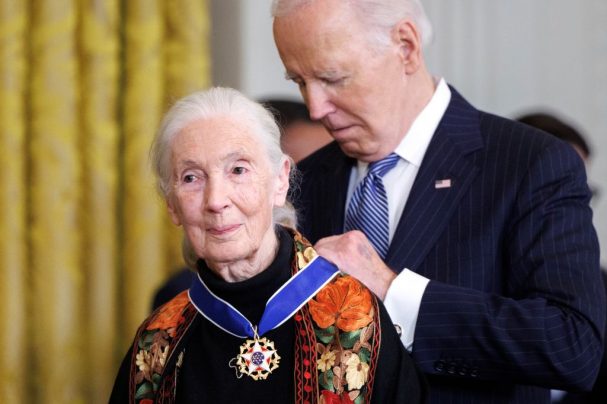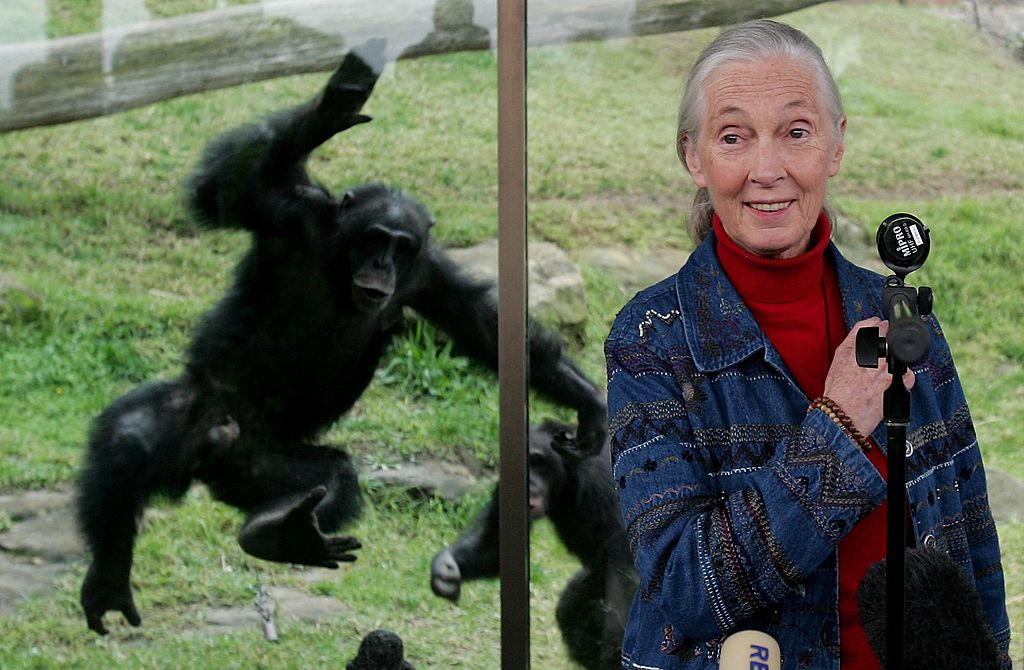Jane Goodall, the world-renowned primatologist, conservationist and founder of the Jane Goodall Institute, has died at the age of 91. The institute confirmed she passed away of natural causes while in California on a speaking tour.
ALSO SEE: Robert Redford dies at 89
A scientist who transformed our understanding of animals
Born in London in 1934, Goodall’s fascination with the natural world began in childhood when her father gave her a toy chimpanzee. By the late 1950s she had travelled to Kenya, where she met the famed anthropologist Louis Leakey, who would later send her to study chimpanzees in what is now Tanzania.
In 1960 she began her fieldwork in Gombe, observing chimpanzees not as distant subjects but as individuals with names and personalities. She documented behaviours once thought to be uniquely human, such as using tools, hunting and forming complex social bonds. Her discoveries challenged scientific orthodoxy and revolutionised the way the world perceived our closest living relatives.
Her research was widely publicised through National Geographic and documentaries, which helped bring her work into homes around the world and turned her into one of the most recognisable scientists of her time.

(Photo by Bryan Bedder/Getty Images for Bloomberg Philanthropies)
A life of advocacy and education
Beyond her research, Goodall became a tireless campaigner for wildlife and the environment. In 1977 she founded the Jane Goodall Institute to continue her work on conservation and primate research, and in 1991 she launched Roots & Shoots, a global youth-led programme that today operates in more than 60 countries.
Her activism grew in the 1980s after she learned of the threats facing chimpanzees, including habitat destruction and exploitation in medical research. From then on, she devoted her life to conservation, often travelling up to 300 days a year, even into her 90s, to speak at events around the world.
Goodall’s advocacy was distinctive for its balance of realism and hope. She often warned of the urgent dangers posed by climate change and biodiversity loss, but always urged audiences to believe in their ability to make a difference. “Each individual has a role to play, and every one of us makes some impact on the planet every single day,” she said.
Honours and global recognition
Goodall’s work was recognised with numerous awards and honours. She was one of the first people to receive a doctorate from Cambridge University without an undergraduate degree and was awarded the Templeton Prize in 2021 for her contributions to science and spirituality. In January 2025 she received the Presidential Medal of Freedom, the United States’ highest civilian honour.
Her influence reached well beyond science. She became a household name, appearing in films and documentaries, and inspired generations of scientists, conservationists and animal lovers.

(Photo by Tom Brenner/Getty Images)
Tributes from around the world
Tributes have poured in from leaders, organisations and admirers across the globe. United Nations Secretary-General António Guterres said: “She is leaving an extraordinary legacy for humanity and our planet.”
Wildlife broadcaster Chris Packham reflected on her lifelong commitment to the natural world, saying: “In many ways Jane just died on the job. The job that her life became. And that was protecting life on earth.”
The Humane World for Animals added that her work on behalf of primates and all animals would “never be forgotten”.
An enduring legacy
From her first observations of chimpanzees in Tanzania to her global campaigns for the environment, Jane Goodall charted a course that changed science and inspired millions. Her voice, her compassion and her message of hope will remain central to conversations about conservation for generations to come.
ALSO SEE:
Featured image: Getty

